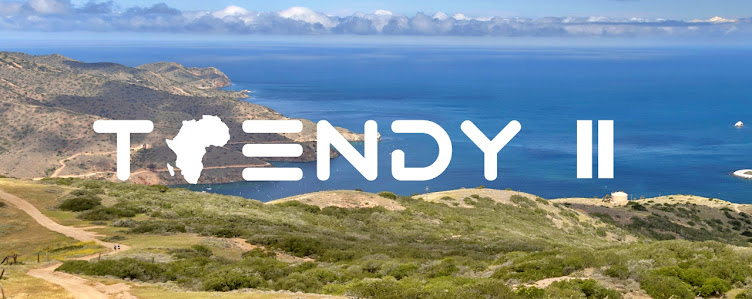Nigeria will earn less for its oil and struggle to
replace reserves unless it can end years of industry stagnation, at a time its
biggest customer is becoming self-sufficient and African rivals are boosting
supplies.
A domestic energy boom in the United States has
already sharply cut demand for Nigerian oil, while legal uncertainty, political
wrangling, corruption and insecurity plague an oil industry which is still
Africa's biggest.
In addition, rivals on the continent - both East and
West - are fast catching up, and hungry for returns to boost their smaller
economies they are tempting foreign oil and gas companies with better terms and
fewer bottlenecks than Nigeria.
"Nigeria has multiple problems in its oil game
- it has failed to meet reserve growth and production targets for many years
... while competition grows worldwide," said Duncan Clarke, Head of
African oil experts Global Pacific & Partners.
"High crude prices have shielded Nigeria of
late - but this may not last forever, and its reputation as the proverbial
Land-of-No-Tomorrow continues."
With oil accounting for around 80 percent of
government revenue and 95 percent of foreign exchange reserves, Africa's second
largest economy is vulnerable to any negative shifts in oil and gas prices
and demand.
The U.S. accounted for 35 percent of oil exports
from Nigeria in 2011. But it imported around 40 percent less last year, taking
purchases from Nigeria to their lowest in over 20 years, according to data from
the Energy Information Administration (EIA), a U.S. government agency.
This drop in demand has already resulted in Nigerian
barrels selling for around 40 cents lower than its official selling price and
left dozens of cargoes unsold and rolled over to future months, according to
research by Africa's Ecobank.
"Nigeria must make increased efforts to capture
more of the rapidly growing Asian market," said Kayode Akindele, partner
at Lagos-based financial adviser 46 Parallels.
"A big issue is that the growing East African
oil and gas industry will prove to be a serious competitor, especially given
its proximity to key Asian markets compared to Nigeria."
There have been around 70 discoveries in sub-Saharan
Africa in the last five years with the majority coming in East African
countries like Tanzania, Uganda and Mozambique.
Around 250 trillion cubic feet of natural
gas may lie off those three countries alone, the US Geological Survey
estimates.
Several East African LNG plants are expected to come
online in the next 5 years, while Nigeria with similar gas reserves has stalled
a new LNG project for the last 8 years, seeing oil major partners Chevron and
Conoco give up stakes.
Shell has sold onshore oil blocks in Nigeria but is
seeking to expand elsewhere in Africa. West African neighbor Ghana recently
became an oil producer.
"There is a finite amount of money to be
invested by oil and gas majors in the short to medium term, and Nigeria needs a
slice of that cake," Mutiu Sunmonu, Shell's Nigeria country head, told an
investor conference last week.
"The competitive landscape has changed ...
Nigeria cannot afford to miss the boat."
Oil Minister Diezani Alison-Madueke looked to ease
concerns last week when she told bankers and oil firms that Nigeria was
entering "a new dawn to boost investment and production."
OLD PROMISES
Alison-Madueke said Nigeria would fix its ailing
refineries, expand oil and gas output, tackle insecurity in the Niger Delta and
ensure the passage of a landmark energy law, which would make it competitive
with rival producers.
The minister made similar promises when she took
office in 2010 but many targets have been missed.
Nigeria loses $6 billion annually to crude theft,
offshore piracy is on the rise and oil majors say it's operating costs are
among the most expensive globally.
Energy consultants Wood Mackenzie forecast Nigeria's
oil production could drop by 20 percent by 2020 because years of delay to a
Petroleum Industry Bill (PIB) have blocked tens of billions of dollars in
exploration investment.
Oil majors say they can't invest in major new
projects until the PIB is passed and if it is passed as it stands with higher
taxes, then new investment will be deterred.
The Chinese have some interest in Nigeria through
Addax, owned by Sinopec, which has said it wants to buy more onshore fields.
Two Nigerian oil firms last week said they did not
think the PIB will ever become law because of vested interests blocking progress
and an insurmountable gulf between oil firms, lawmakers and the oil ministry
over terms.
Nigeria state oil firm NNPC is at the centre of the
country's energy business but is blighted by under-funding and
corruption, according to several government probes.
But around half of sub-Saharan oil output still
comes from Nigeria and oil firms say it could comfortably double crude
production and unlock the world's ninth-largest gas reserves if Alison-Madueke
comes good on her promises.
Changing global oil dynamics still offer an
opportunity.
"Declining U.S. demand provides yet another
incentive for the Nigerian government to conduct the reforms needed to reduce
the losses, leakages and general dysfunction," said Roddy Barclay, West
African analyst at Control Risks.
"(If not taken) investor appetite will remain
muted by the array of complex political, operational and security risks that
will continue to characterize Nigeria's oil sector."
Source: Reuters

